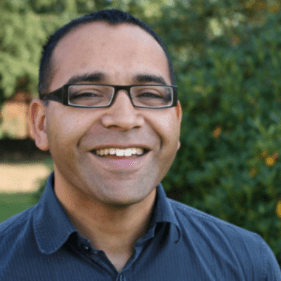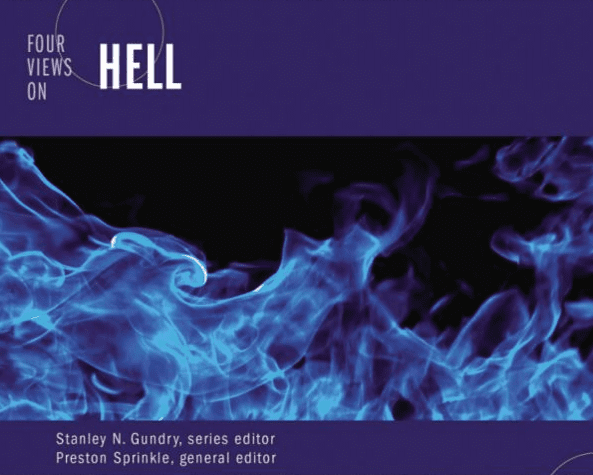From Jeff Cook.
We Need Better Answers. A Response to Mark Galli.
I love and admire Francis Chan and Mark Galli, and am very grateful for the fruit of their lives, and even for their upcoming work on hell. I want to continue to dialogue about present issues in the church with class and respect and in that spirit, I want to offer a disclaimer. I am going to bring my argument strong and candidly with no antagonism toward anyone in particular, just a deep unrest at the present state of Christian thought.
During the recent rapture hoopla I heard a commentator say, “Making fun of born again Christians is like hunting dairy cows with a high powered rifle and scope.” I assume it’s because he thinks ridiculing Christians is not very challenging, and after a while it’s not very fun. But this insult contains a nugget of truth.
Christians hold in their hands the most profound sets of insights into the human condition ever constructed and yet despite their numbers and resources they consistently produce the most lack luster art, literature and academic thought available in popular circles. For example, I find the “Christian living” section of the local bookstore—with a few exceptions—a disheartening place because apparently this set of texts is the best our culture can do when displaying Jesus Christ and his plan for the world.
I work at a state university in Colorado. I gave up God-belief during grad school when I realized the Christian truths I had been defending since my high school days were insufficient in the face of contemporary thought. I stepped away from God-belief, *not* because I hadn’t experienced God’s work in my life, hadn’t read the scriptures and found them beautifully compelling, not because I didn’t respect and love the church. I walked away because American Christianity gave me no good reason to think it was true. In fact, I found the converse.
Alongside the problems of evil and divine hiddenness, it was the dual problems of hell and divinely mandated genocide that pushed me away from Christian belief, and it was not for a lack of trying to stick. With the exception of the problem of evil, the responses given to these problems from Christian thinkers were bland, uncompelling, disinterested and often offensive. When I asked the apologetics of our day why God is not more evident to some very good people, why God commanded the slaughter of Canaanite 4 year olds, and why God feels compelled to sustain the souls of dysfunctional human beings in a state of everlasting torment—the answer I read over and again on my road out the Christian door was “God’s ways are not our ways.”
To those of us who have real questions, this is a tragically uneffective response. And even if it has arguable roots in the scripture, it should no longer be employed because it makes Christian belief look dim. The truth is we need to think hard for the sake of real people who have real questions. We need to construct the best possible presentation of our savior as an act of devotion. Failure here is unacceptable, and if at the end of the day we are unable to intellectually display answers to some of our neighbor’s deepest questions, it should not be for lack of trying.
Unfortunately, sloth and the politicization of ideas is an intellectual sin widespread in Christian churches, universities and publishing houses. We are afraid—afraid we might rock the status quo ship we’re sailing, afraid that there might be dissension in the pews, afraid that we may have been getting it wrong for a long time now. And so we continue to produce below average literature, suggesting below average ideas about an extra-ordinary God.
That course needs to be rejected. I continue to defend my earlier proposal: The world needs good thinkers to show us why Jesus, the scripture, even doctrines concerning hell are worthy of devotion.
Because it is by no means clear that the Biblical God exists. Because it is by no means clear that the scriptures display the true God, or that the Bible is inspired in any way. Because it is by no means clear that God is good, that Jesus is alive, or that we aren’t all just sustaining our sanity with the story of resurrection. There are plenty of reasons for doubt here.
Some Christians find themselves presupposing a certain kind of Christian Theism (as it seems Galli and Chan are doing) that allows them to chalk up all apparent anomalies to “mystery”. But that position is not self-evident. For the sake of the rest of us, we need to pursue compelling answers.
There is a hopeful side to my story which illustrates the point. I was deeply fortunate that even though I embraced an agnostic position seven years ago, I began to listen to podcasts by a Bishop in Durham, England and a pastor in Grand Rapids, Michigan. I found that these men were actually entering the mindset of the good-hearted skeptic. They were embracing my confusion and theological difficulties as their own, and they began to speak over that chaos fresh words. I am deeply thankful for those two men, and we need more thinkers like them, who are not content with present group-think and who have the courage of soul to step forward and offer more potential beauties of creedal Christianity—even when those answers may be seen as controversial or worthy of rejection.
I look forward to Mark’s concluding response.
Jeff Cook teaches philosophy at the University of Northern Colorado and is the author of Seven: the Deadly Sins and the Beatitudes.











